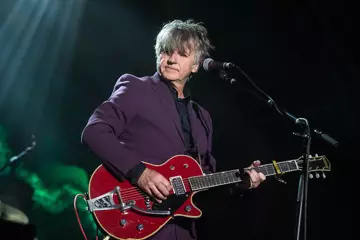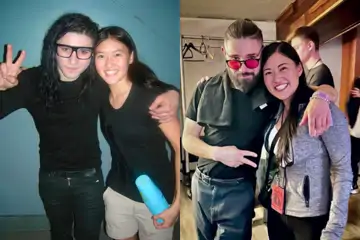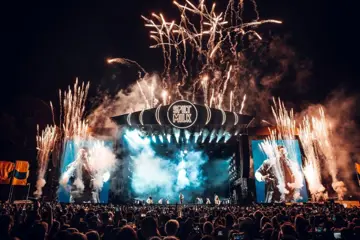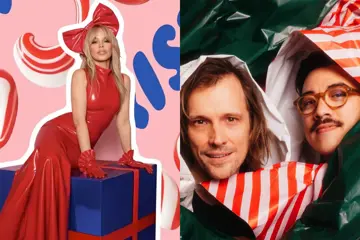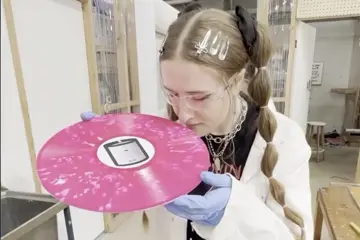Late last month, MusicNSW announced the appointment of five industry professionals to lead music development in regional hubs across the state.
Dave Burgener, Ali Buckley, Kayne Mills, Sam Rees and Sophie Jones will work in regional development work for four years. In that time, the fab five will build capacity and relationships between local industry and artists and provide on-the-ground support for regional musicians, venues and live music professionals to grow regional touring.
Emily Collins, the Managing Director of MusicNSW, said in a statement, “We're so excited to have such an impressive group of experienced and connected music champions join our team. Employing people on the ground makes such a huge difference to us as an organisation - it means we can tailor our support for community needs, and have real conversations about challenges and opportunities.
“Four-year funding is so important for projects like this - it provides us with stability, the opportunity to plan more than 12 months ahead, and to take a long-term strategic approach to music development.”
To find out more about the team’s actual responsibilities, The Music caught up with MusicNSW’s new regional development team.
What will you be doing specifically in your area to help boost regional music?
Kayne Mills – Regional Coordinator across South West Arts, Western Riverina Arts, Eastern Riverina Arts and Murray Arts: We will be bringing 5 regional tours spread across NSW, delivering 6 professional development workshops, and growing MusicNSW’s Regional Touring Network. The aim is to help grow the sustainability and capacity of touring across regional NSW.
Don't miss a beat with our FREE daily newsletter
In my area specifically, my hope is to help support a larger original music scene to give emerging and developed artists a more consistent stream of music performance opportunities within the region and grow the industry.
Dave Burgener – Regional manager across Arts North West and Arts Northern Rivers: One of the main supports I’ll provide is to offer 1 on 1 consultations. This is available to artists, venues, managers, promoters, etc. It will be a 2-way communication where I can share resources and examples of best practice and also gather information about the issues and opportunities within the region. My aim is to help find solutions to the challenges that individuals and businesses face, and at the same time develop a more informed and holistic approach to the work that MusicNSW does to support and advocate for the industry.
I’ll continue to curate the MusicNSW Spotify lists for the Northern Rivers and North West regions - and hopefully expand the network of organisations that use those lists. For example, perhaps a local business can include the Spotify list in their rotation of music they play in the store. Or perhaps a local council can feature regional artists when people phone in and get put on hold.
The regional team will also be organising 6 online professional development workshops about capacity building for regional touring.
Sophie Jones – Regional Coordinator across Arts OutWest, Outback Arts and West Darling Arts: I think a big part of creating and sharing music, and of the music industry itself, is connection. And that can be hard if you’re in a rural or remote area, so some of the things I’ll be doing to boost regional music is:
- Connecting people through regional tours, which will help build relationships between artists and venues and help them expand and connect with their audience of live music lovers
- One-on-one consultations where I really get the chance to meet the music champions in the region and see what they need and how to best support and empower them.
- Working closely with the Regional Arts Development Organisations (RADOs) and travelling to some of these towns I’ve either never been to (hello Broken Hill!), or haven’t had the chance to stop in at, and have some proper conversations and get a feel for the live music scene in these towns.
- Empowering artists and helping them gain new skills via the professional development workshops to give them the confidence to get their music out there, whether it’s via recording, releasing a single, booking a tour, finding other people to collaborate with, getting better skills in marketing, promotion, social media.
Sam Rees – Regional Coordinator across Southern Tableland Arts, South Coast Arts and South East Arts: I will be helping build connections between the artists and venues or artists and promoters. There are a number of great things we will be implementing to do this including online events and personal development workshops, as well as weekly 1-on-1 sessions with me to help build an artist's career and sharpen their skills.
As a team, we will be delivering 5 regional tours, in which artists will get the opportunity to tour across regional NSW, network and establish new relationships with other artists, venues and industry professionals. The Regional Touring Network is another tool I will be using to help boost regional music.
This database and touring program that helps artists navigate touring and to connect with venues is something we continue to build on. We also have a Facebook group for our region to stay in touch with and inform artists about great opportunities and I will be helping curate our local Spotify playlist to promote local releases.
Ali Buckley – Regional Coordinator across Orana Arts, Arts Upper Hunter and Arts Mid North Coast: MusicNSW’s regional team is focused on increasing touring across regional NSW. With 5 Regional Music Coordinators across NSW, who have on-the-ground knowledge about their own regions, we are well-placed to connect artists with venues, sound engineers and industry to each other.
As a team, we will be delivering a series of professional development workshops on regional touring, so that artists and promoters are empowered to tour regionally.
Following the workshops, we will support regional artists (through an EOI process) to deliver 5 regional tours. These initial tours will be great case studies that we can further develop in subsequent years.
We will also add venues to the Regional Touring Network, https://rtn.musicnsw.com/ (it’s such a great tool for diving into the world of regional touring), curate Spotify Playlists of local artists, share opportunities and industry news on our Facebook groups and meet with artists and industry to hear their thoughts on what their regions need to support live original music.
We also offer 1-on-1 support to artists and the industry. These 30-minute sessions are such a great in-depth part of the role, where we really get to hear and support the aspirations of artists and the industry. I also do a monthly spot on ABC Mid North Coast highlighting local artists.
What needs to be done in your area to attract tours and make regional touring more viable? What are the challenges touring musicians face?
Mills: I feel building more relationships between artists and venues is the key to developing a more viable regional touring scene. Some venues may perceive that putting original music is a risk because they have not done it before. It can also be an opportunity for the venue to attract new patrons, and of course, it supports original artists to help them develop further on their musical journey.
I feel one of the biggest challenges for regional touring is promoting and helping people become aware of events within the region. I know from personal experience that people seem to only find out about events after the event has taken place! So developing more resources for musicians and punters alike to be aware of the events is key to growing regional touring and a vibrant music scene.
Burgener: Each area has different needs. Some areas would benefit from more venues hosting original live music. In other areas, there is a lack of sound engineers and technical knowledge. There is also the challenge of managing the financial risk for artists investing money into a tour or venues hosting a gig.
The MusicNSW regional team will be collaborating on the delivery of 5 regional tours. One of the key motivations for the tours is to test the viability of regional touring and share the knowledge and experience gained with the community. Our regional team is in the process of gathering data and developing an Expression of Interest process for artists to get involved.
Those 5 tours will be delivered across regional NSW (i.e. not just in the Northern Rivers and North West regions). Keep an eye out on the MusicNSW Facebook pages for Northern Rivers and North West regions for updates.
Jones: I think if we can have more venues that are dedicated to live, original music rather than a DJ or just putting a musician playing covers under the TV while the footy is on, that would absolutely make regional touring more viable. Even better is being able to get more venues that have a dedicated listening space and somewhere that provides a great sound engineer and gear. Those things make touring ANYWHERE seem way more appealing!
We also have a lack of promoters out here so I think finding some more people in the region who are keen to do that kind of work would be exciting and make it easier for people booking tours to have a ‘go-to’ person who knows a lot of the musicians/venues/sound engineers etc in the region to contact.
The main challenges touring musicians are facing right now are ticket sales and getting bums on seats. It’s really hard out there right now, still coming off the back of Covid, the high price of living etc. Punters either can’t afford a ticket to a gig or are maybe still too scared to come out and be in big groups.
Also, people are leaving buying tickets until the last minute which means that musos are having to cancel tours due to low ticket sales as they maybe can’t afford to drive out to the regions and spend a night out here when only a handful of people have booked tickets. So we need people to buy tickets and buy them early!
Rees: I think getting more original music shows into our venues will increase the interest of touring bands. If bands from other areas of regional NSW hear about these venues holding all original music band nights, they will be more motivated to reach out and plan a visit here themselves. Capturing photos and videos of local original shows and sharing them through our social media is one way we will draw attention to our areas and venues.
One of the toughest challenges to navigate is getting people into the shows. After a crazy couple of years, we have had through COVID and the costs of living going up around us, getting people through the door for a reasonable price whilst still being able to pay for production, artists and the logistics surrounding the show is difficult for artists and venues alike. Artists are also faced with the challenge of covering increasing travel costs on the road, like accommodation and fuel.
Buckley: Connecting industry across Regional NSW through the development of viable touring routes. This may look like a 3-stop tour of venues that are dedicated to programming and promoting live original music.
I feel a lot of it is about building confidence, and showing that regional touring is a viable business model. Especially after the lockdowns, audiences and artists are still feeling the effects.
Hopefully, the 5 regional tours we support will help build that confidence back.
Connecting venues so they can share in the cross-promotion could really work. It can be daunting for an artist who plays regularly to a packed house in their hometown, to promote and then play a gig in an unknown town, where nobody knows them. The venues really need to be across the promotion, plus we can connect artists inter-regionally who can be support acts for each other and share audiences.
How should musicians in your region approach trying to make it, and how will your work over the coming years help?
Mills: Depending on the artist or band’s perception and definition of “making it” I feel it’s important to take a holistic approach. This includes staying focused on the music, building an active social presence, preparing your EPK (photos and band information), as well as being active in the local music scene.
This could mean attending gigs and supporting other bands, venues and organisers. Of course, it’s important to practice your set, write new material, and upload your music to streaming services to grow your audience.
Most importantly, be authentic and stay true to why you became a musician and why you want to share your music. If you have a clear goal and vision of what that looks like, then map it out step-by-step and approach each step one at a time.
I will be working to help artists, bands, venues and organisers connect and build relationships with one another to grow the regional music scene.
Burgener: It’s critical that musicians develop a clear vision of what “making it” means. It could be to record their next album, organise a tour, or increase their annual income by 15%. The path to success depends on the destination in mind! For example, if their goal is to achieve greater financial stability, then artists might focus on increasing revenue through playing more shows, selling more merch, and offering personalised ‘VIP-type’ experiences for their core fans.
However, it might also be about choosing the right business structure to reduce taxes and keep more money in their pockets. So there are a lot of different factors to consider. In general, it’s helpful to break larger goals into small and more manageable steps. It’s amazing that you can get to one step at a time!
I think my work will help:
- Connect - build relationships, help people find the “right” collaborators for their projects or business, and organise some local networking events to bring people together.
- Advocate - collect data and ‘on the ground’ examples of the issues and opportunities facing the regional music scene as a whole, and then represent those views to the industry more broadly to ensure a voice for regional NSW.
- Empower - raise the level of knowledge and professionalism specifically related to regional touring. For example, our Regional Touring Network (RTN) is an amazing resource for independent artists, booking agents, and venues. Raising awareness for the RTN and continuing to develop the number of venues included can help build up the viability of regional touring. Our regional team will also host 6 online Professional Development workshops each year focused on capacity building for regional touring. We’ll draw on industry experts to share their knowledge and experience about what works, what doesn’t, and how to increase your probability of success.
Jones: I think having an open mind (being open to maybe touring somewhere you haven’t been before or working with people you haven’t met or worked with before because maybe that’s how you find and end up connecting with your people!) and also being clear on what your goals are (what does ‘making it’ mean to you) is really helpful.
Also just putting in the work by doing your research on the best places to tour (check out the Regional Touring Network to help you with that one!), making sure your marketing is solid, building good relationships with other venues, musicians, promoters and sound technicians, taking the time to do workshops to expand your skill set and by getting along to other people’s shows to help support and build each other up!
Our work over the next few years will help because we will be connecting people via tours and then empowering them via workshops, so by helping them gain these skills and nurturing these relationships it means everyone is able to expand their audience and knowledge, which is really exciting!
Rees: “The squeaky wheel, gets the oil” - go out and be as active as you can in your local music community. If there is a local jam night or open mic, put your name down. If MusicNSW is putting on a workshop that you think will help you shape your career, make sure you get there! It is hard work and consistency that get you noticed. Doing that over time, will build relationships and networks that will get you more opportunities.
I believe that delivering personal development workshops, regional tours and consistent online and on-the-ground support will result in more venues hosting original music and a more stable ground for our touring artists.
Buckley: Really taking yourself seriously as an artist and realising that any profession requires personal investment - practising regularly, playing regular gigs, developing a brand, and merchandise. Getting all your socials in order and presenting your act to venues in a professional manner.
Touring is a great way for artists to develop their stagecraft and build audiences. There is risk and effort, but it’s the same as any other career path, it requires dedication, skills and development.
As the Regional Music Coordinator, I can support artists to develop their knowledge and skills around touring, share resources and opportunities and connect them with venues and industry across regional NSW.




